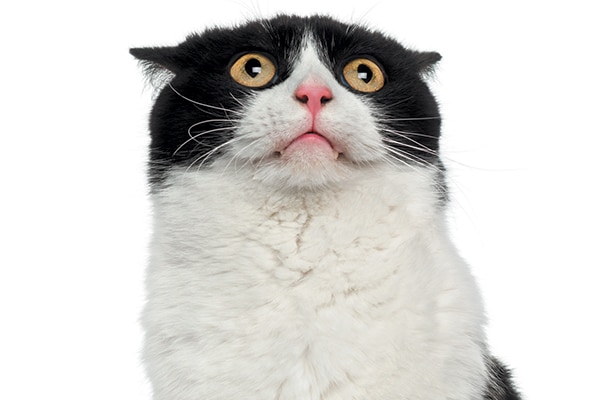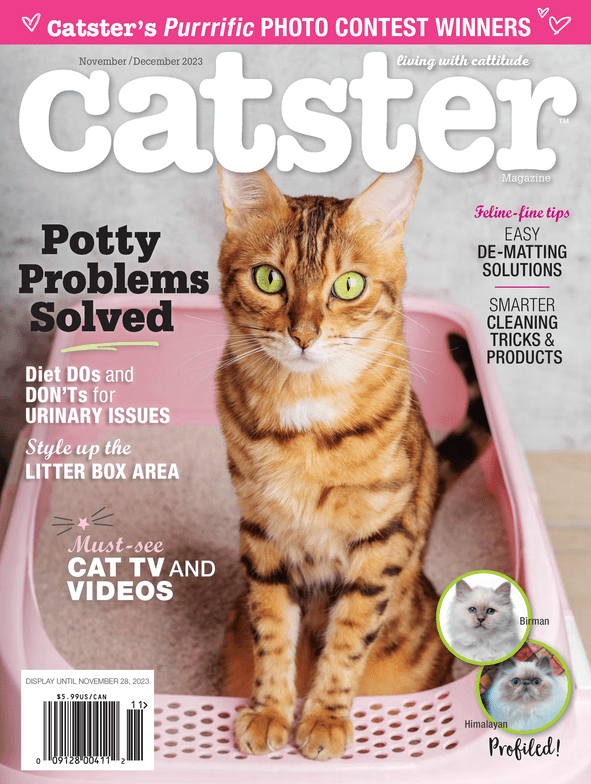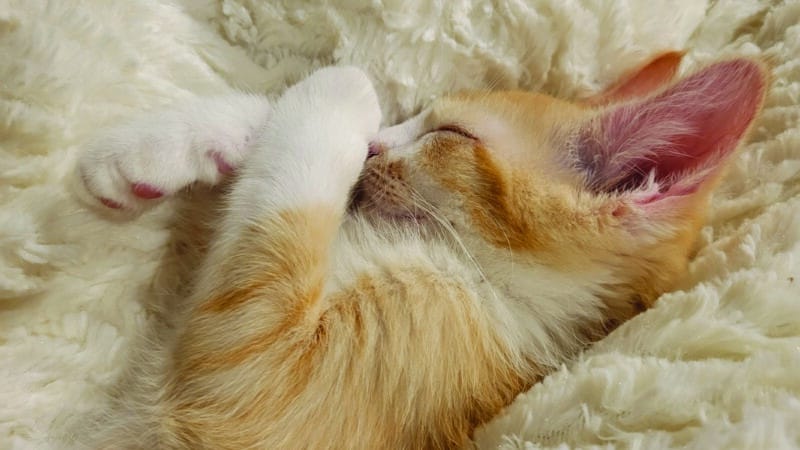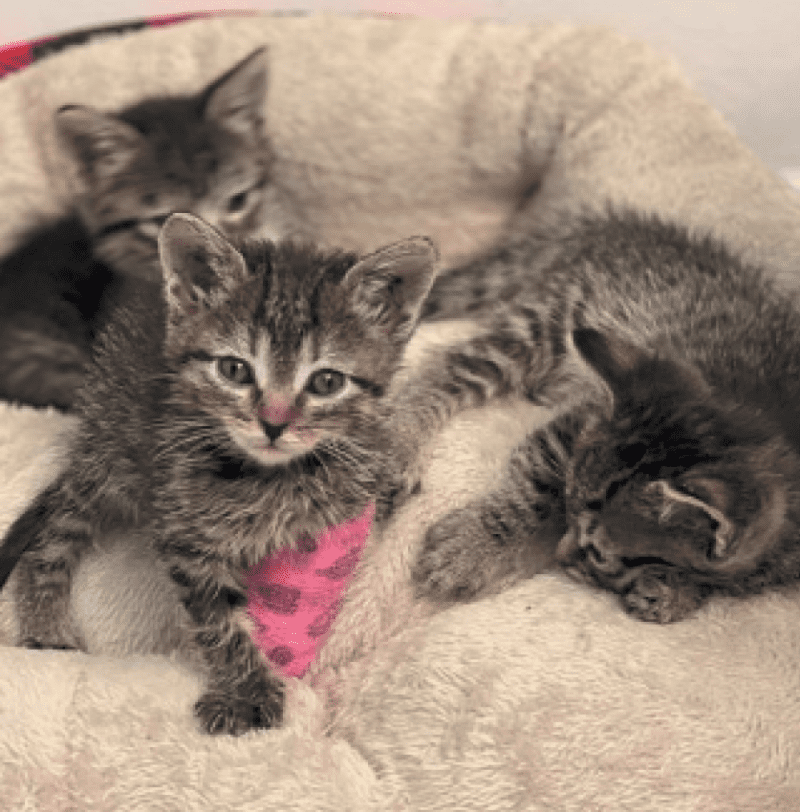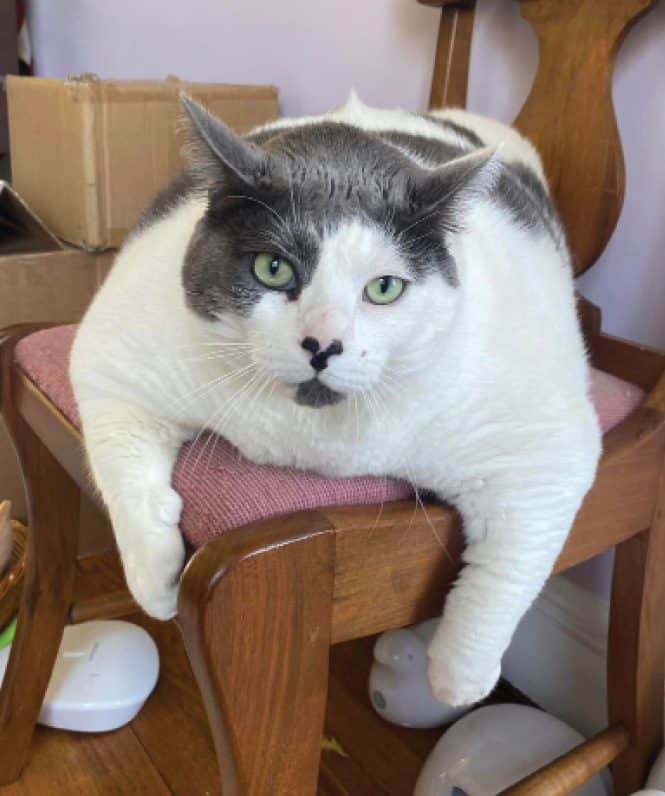Most indoor cats live a pretty consistent lifestyle, which is often reflected in the litter box. The gastrointestinal tract of the cat is remarkably efficient at producing firm poop, and the majority of cats have regular stools. Every now and then, however, a cat has diarrhea. Usually, if a cat has diarrhea, there’s no cause for concern. Persistent diarrhea, however, is not normal. Left untreated, diarrhea can cause dehydration and electrolyte imbalances.
What to consider when your cat has diarrhea

There are a multitude of reasons why a cat has diarrhea. Depending on the cause, cats with diarrhea may appear perfectly fine except for the diarrhea, or they may be significantly ill, with other signs such as fever, weight loss, vomiting, and decreased or absent appetite.
Intestinal parasites are common in kittens and in cats that go outdoors. Diarrhea due to GI parasites may only require routine deworming. Once your veterinarian determines which parasite is causing the diarrhea, he or she can prescribe the appropriate medication.
If your cat has diarrhea that’s acute
If your cat has diarrhea that’s acute (where the onset was sudden), she may not require any treatment if she seems fine otherwise. Symptomatic therapy, such as withholding food for 12 or 24 hours to rest the GI system, followed by feeding a highly digestible prescription diet may help hasten the recovery.
Cats whose acute diarrhea lasts a few days may benefit from subcutaneous (under the skin) fluids and anti-diarrheal medications. These should be obtained from a veterinarian and not over-the-counter, as many OTC anti-diarrheal drugs intended for humans may contain substances harmful or toxic to cats.
If your cat has diarrhea that’s chronic
If your cat has diarrhea that’s chronic (lasting for weeks or months), your cat needs a vet exam. Depending on the severity and the presence of other signs, your vet may want to perform some tests such as a complete blood count (CBC), chemistry panel, urinalysis, fecal exam, a vitamin B12 and folate test, and abdominal ultrasound. In my experience, food allergy and inflammatory bowel disease are two of the more common causes if an adult cat has diarrhea that’s persistent.
Although pancreatitis (inflammation of the pancreas) is not a major cause of diarrhea in cats, it can definitely occur. The primary clinical sign in cats with pancreatitis is vomiting, but poor appetite, weight loss and jaundice can also be present. Diarrhea, while much more common in dogs with pancreatitis, is not as common in cats.
Reasons why your cat has diarrhea
- Change in diet (I learned this firsthand when I gave my cat, Glitter, a tiny little piece of freshly cooked salmon. Never again.)
- Gastrointestinal infections
- Intestinal parasites
- Food allergy
- Food hypersensitivity
- Inflammatory bowel disease (IBD)
- Pancreatitis
If your cat has diarrhea caused by food allergies
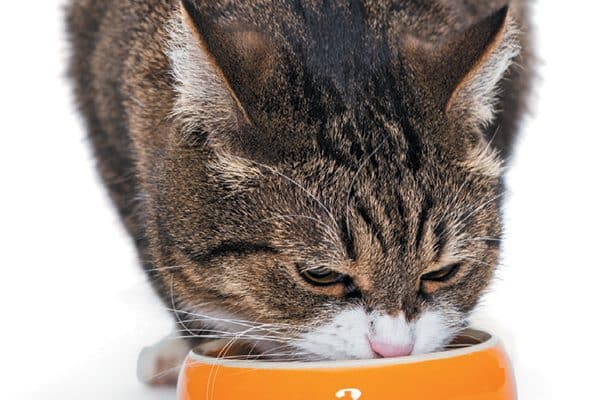
A sudden change in diet is not required for a food allergy to develop. In fact, the opposite is often true; cats develop allergies to ingredients they have been fed for a long time. Chicken, beef and fish are the most commonly implicated ingredients.
The cause of a food allergy is genetics; it is passed on from one or both parents. A food allergy more commonly manifests as a skin issue, with affected cats showing itching, inflammation and scabs, especially around the head and face. Gastrointestinal manifestations are less common, but when they occur, vomiting and/or diarrhea is what we usually see.
How to handle diarrhea caused by food allergies in cats
A diagnosis of a food allergy is made by performing an “elimination food trial.” A hypoallergenic diet is fed exclusively, and the response is monitored. A hypoallergenic diet is one that contains a protein source that the cat has never been exposed to, like rabbit, venison or duck. No other food or treats can be fed during this trial, or the results can be inconclusive.
Diarrhea usually resolves in a few days if a food allergy is the culprit. Once signs resolve, feeding the previous diet and seeing the diarrhea return is definitive proof of a food allergy. Then, the hypoallergenic diet will need to be fed long term.
If your cat has diarrhea caused by IBD
More common than a food allergy, in my experience, is inflammatory bowel disease (IBD). This is a disorder in which the gastrointestinal tract makes an uncontrolled or excessive inflammatory response, resulting in an influx of inflammatory cells into the stomach or intestines. Cats with IBD tend to be middle-aged or older, although any age cat can be affected.
The most common symptom of feline IBD is weight loss. This is usually accompanied by other signs such as decreased appetite, vomiting and, of course, diarrhea. In cats, vomiting is a more common manifestation than diarrhea. (In dogs, the opposite is true.) Physical exam findings vary greatly in cats with IBD. Most cats with IBD are underweight.
Occasionally, thickened or fluid-filled intestines can be felt when the abdomen is examined. Routine laboratory tests tend to be normal, although many of these cats have decreased levels of vitamin B12 and/or folate in the bloodstream.
Abdominal ultrasound typically reveals increased intestinal wall thickness and enlarged intestinal lymph nodes. These findings are suggestive, but not diagnostic, of IBD. Ultimately a definitive diagnosis requires obtaining biopsies of the intestinal tract, either by surgery or endoscopy.
What can you do if your cat has diarrhea?
Treatment of IBD usually involves administering immunosuppressive drugs and prescription diets. Corticosteroids, such as prednisolone, are the most commonly prescribed immunosuppressive drugs. Initially, higher doses are administered, and as the signs begin to abate, the dosage can be tapered but not stopped completely.
Again, I speak from personal as well as professional experience. My cat Mittens was diagnosed with IBD seven years ago. She vomited several times a day and was not responding to a variety of dietary and medical manipulations.
Ultrasound revealed thickened intestines, and endoscopic biopsies confirmed IBD. She responded dramatically to prednisolone. Mittens gained back the 2 pounds that she lost, and she rarely, if ever, vomits now. She is maintained on a small dose of prednisolone every other day.
Diarrhea is less common in cats than in dogs, but it does occur occasionally. Acute cases tend to resolve on their own or with minor intervention. Chronic, persistent diarrhea, however, is a sign that something more significant is amiss.
Because there are many reasons why a cat has diarrhea, a thorough diagnostic workup may be necessary to pinpoint the true cause of the diarrhea. Treatment of diarrhea will vary, depending on the cause, as will the prognosis, but most cats have a favorable outcome.
Thumbnail: Photography ©GlobalP | Getty Images.
Editor’s note: This article appeared in Catster magazine. Have you seen the new Catster print magazine in stores? Or in the waiting room of your vet’s office? Subscribe now to get Catster magazine delivered straight to you!
About the author
Dr. Arnold Plotnick is the founder of Manhattan Cat Specialists, a feline-exclusive veterinary practice on Manhattan’s upper west side. He is also an author of The Original Cat Fancy Cat Bible. Dr. Plotnick is a frequent contributor to feline publications and websites, including his own blog, Cat Man Do. He lives in New York City with his cats, Mittens and Glitter.

